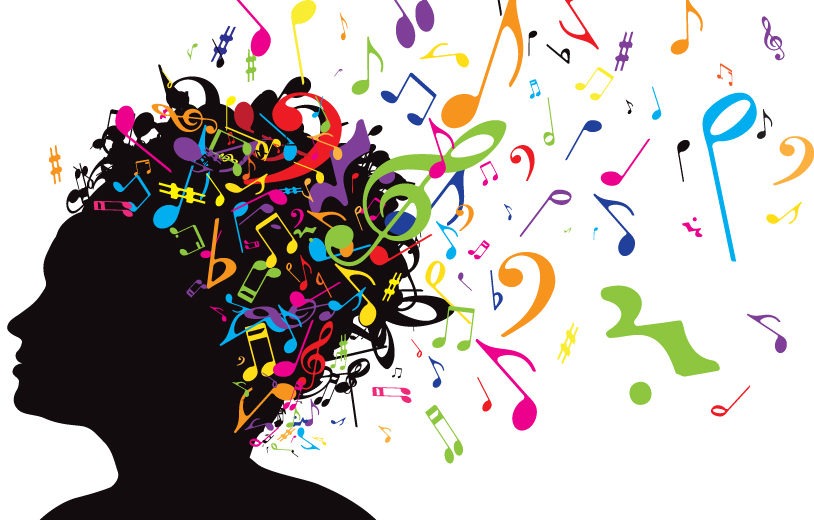Develop Your Refuge: Recovery Music to Foster Healing and Renewal
Wiki Article
The Impact of Music on Feelings and Psychological Well-being
In the realm of psychology and wellness, the profound impact of music on feelings and psychological health has actually long been a topic of rate of interest and research study. From influencing mood to serving as an effective device for stress and anxiety monitoring, songs's function in shaping mental health is deserving and complex of more exploration.Effect of Music on State Of Mind

Research study has revealed that music can modulate state of mind by triggering neural pathways associated with emotions in the mind. Paying attention to music can stimulate the launch of neurotransmitters like dopamine and serotonin, which are understood to manage mood and emotions. This physical action to songs describes why particular tunes can promptly boost our spirits or bring splits to our eyes. Comprehending how music influences state of mind can have significant effects for utilizing songs as a restorative tool for emotional regulation and psychological wellness.
Connection Between Songs and Stress And Anxiety
The interaction in between musical stimulations and the human feedback to stress and anxiety has been a topic of expanding interest in the areas of psychology and neuroscience (MUSIC). Songs has revealed remarkable potential in mitigating stress and anxiety degrees and promoting leisure. Research studies have suggested that listening to music can bring about physical modifications in the body, such as decreased heart rate, lower blood pressure, and lowered degrees of cortisol - a hormonal agent connected with stress and anxietyThe connection in between music and tension relief is believed to be carefully connected to the impact of songs on the limbic system, which plays a vital duty in emotions and stress responses. In addition, individual music choices can also affect the stress-reducing results of songs, highlighting the value of personalized techniques when making use of music as a stress management device.
Music as a Restorative Tool
:max_bytes(150000):strip_icc()/pop-music-57bce3863df78c87634ea806.jpg)
Research has revealed that music treatment can substantially reduce anxiousness, clinical depression, and persistent pain. It has been especially valuable for individuals with mental health conditions, developing specials needs, and those going through clinical treatments. Music straight from the source has the capacity to evoke memories, stimulate favorable feelings, and offer a feeling of comfort and relaxation. On top of that, songs therapy can improve cognitive feature, motor abilities, and social interactions.
Impact of Music on Mental Health

Acknowledged for its efficiency in reducing a series of psychological issues, songs's influence on mental wellness is a topic of expanding rate of interest and study. Songs has actually been found to have profound effects on mental health by influencing mood, reducing stress, and improving general wellness. Research study suggests that listening to music can stimulate the launch of natural chemicals like dopamine and serotonin, which are related to satisfaction and state of mind policy. This can result in reduced signs moved here and symptoms of anxiousness and depression. Additionally, songs treatment, an organized use of songs to boost psychological wellness outcomes, has been revealed to be advantageous for people with various mental wellness problems, consisting of trauma (PTSD), schizophrenia, and mental deterioration - MUSIC. In addition, songs can function as a kind of self-expression and psychological launch, giving individuals with a healthy outlet for their feelings. On the whole, the influence of songs on psychological health and wellness is an appealing location of research that uses possible restorative advantages for individuals facing numerous psychological health and wellness difficulties.
Ways to Include Music for Health
An efficient way to improve health via music is by incorporating tailored playlists tailored to private choices and state of minds. Songs has the power to evoke feelings and influence our psychological state, making it a beneficial device for promoting well-being. One means to integrate songs for well-being is by producing playlists that reverberate with specific emotions or goals. Producing a playlist of positive songs for an early morning increase or unwinding tunes for stress alleviation can be helpful.
An additional method to utilize songs for wellness is with active listening. Taking the time to genuinely engage with the music, concentrating on the verses, instruments, and general structure, can strengthen the emotional link and amplify the healing results. This conscious technique to listening can aid people process feelings, lower stress and anxiety, and improve general mental health and wellness.
Furthermore, participating in online music events or concerts can also add to well-being by supplying a sense of pleasure, area, and connection. Being part of a common music experience can uplift spirits, foster a feeling of belonging, and create lasting memories that favorably affect mental well-being.
Conclusion
In final thought, music has a considerable effect on feelings and mental health. It can influence mood, reduce stress, and work as a healing device for enhancing mental health. Incorporating music into daily regimens can boost general health and add to a favorable state of mind. It is necessary to identify the power of music in advertising psychological equilibrium and psychological quality.The relationship between music and mood is complex, with numerous aspects of songs such as pitch, setting, and tempo playing crucial roles in evoking psychological feedbacks. Recognizing just how songs influences mood can have resource considerable ramifications for utilizing songs as a restorative tool for emotional regulation and mental well-being.
The link in between songs and stress and anxiety alleviation is thought to be carefully linked to the influence of songs on the limbic system, which plays a crucial function in emotions and stress responses. In addition, individual songs preferences can also affect the stress-reducing impacts of music, highlighting the importance of customized techniques when utilizing songs as a stress monitoring device. In addition, music treatment, a structured usage of music to enhance mental wellness outcomes, has actually been shown to be helpful for individuals with different psychological health problems, consisting of post-traumatic tension problem (PTSD), schizophrenia, and dementia.
Report this wiki page